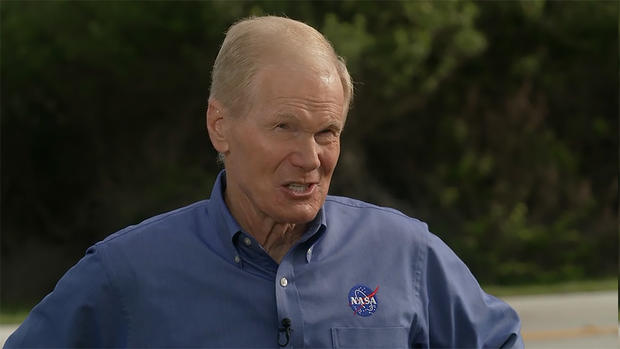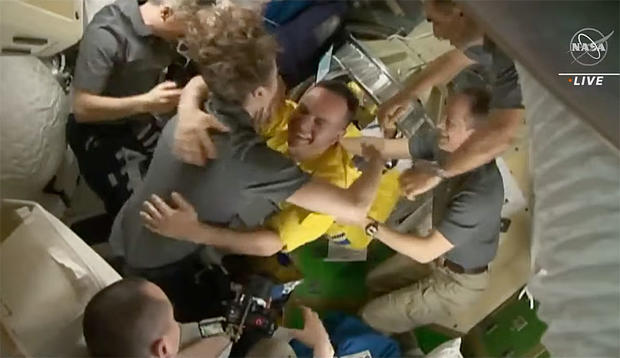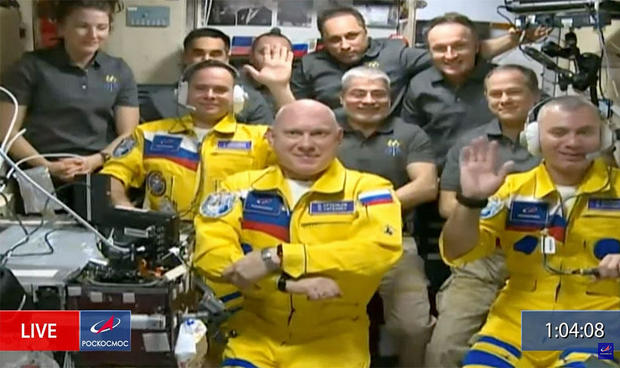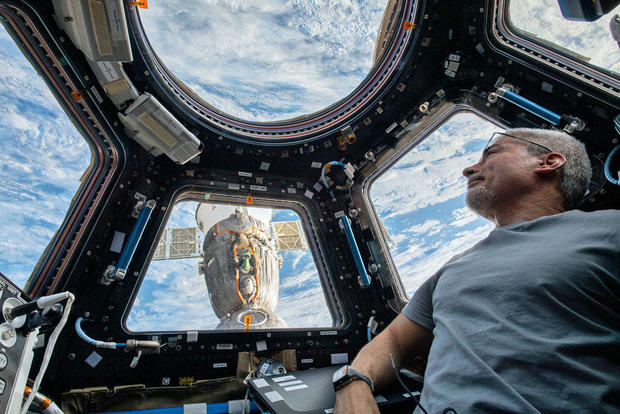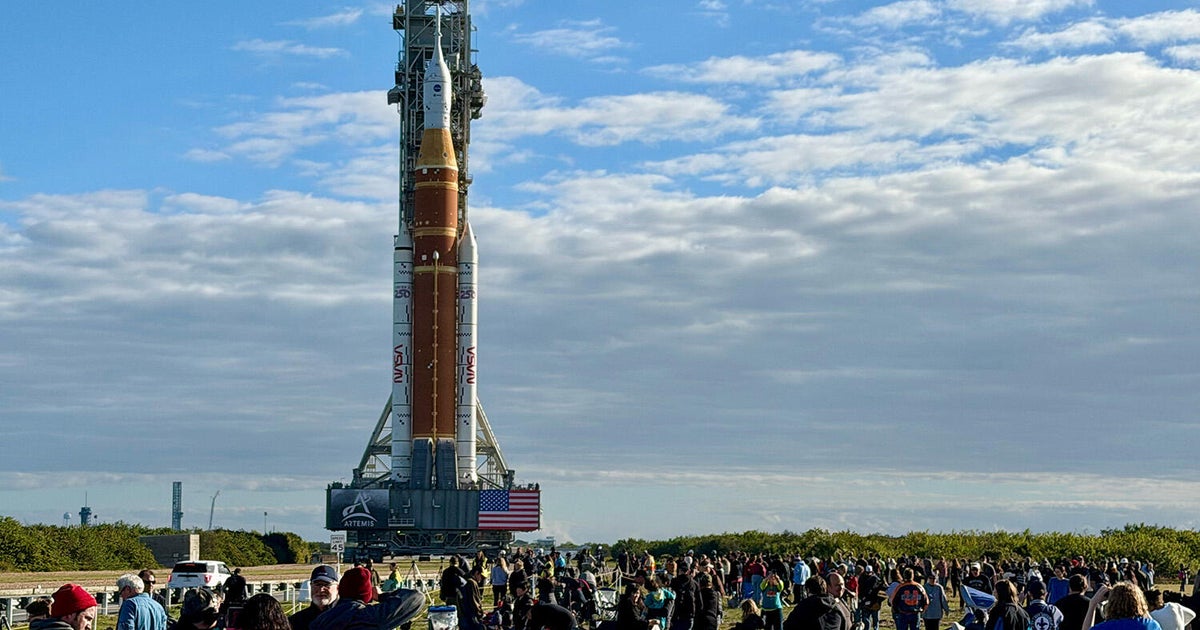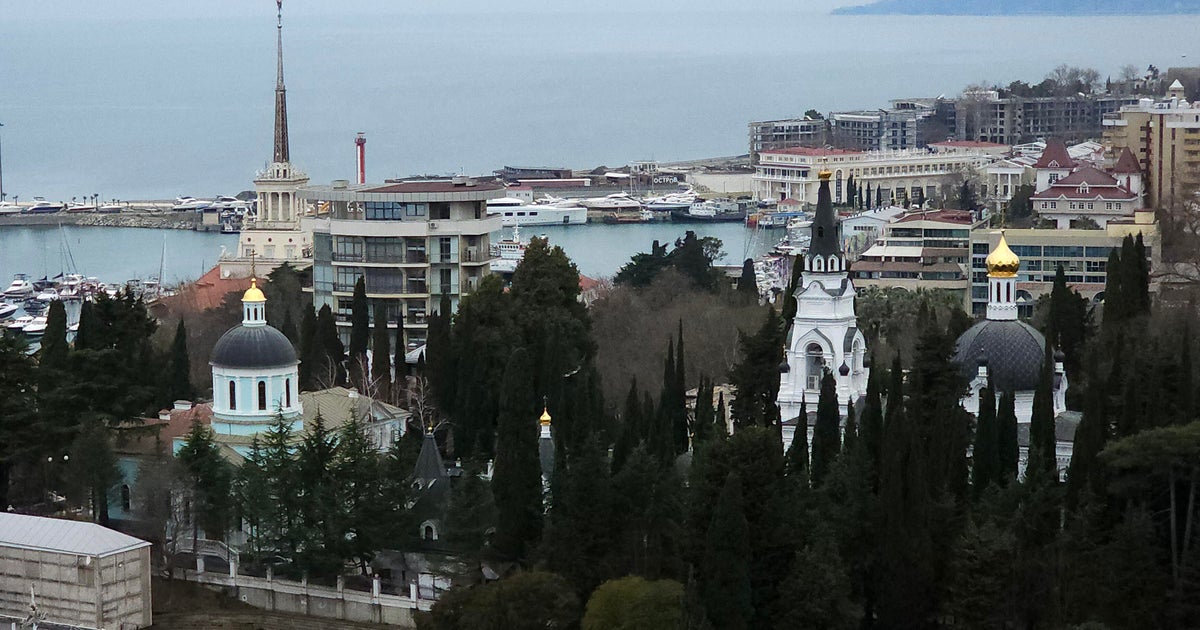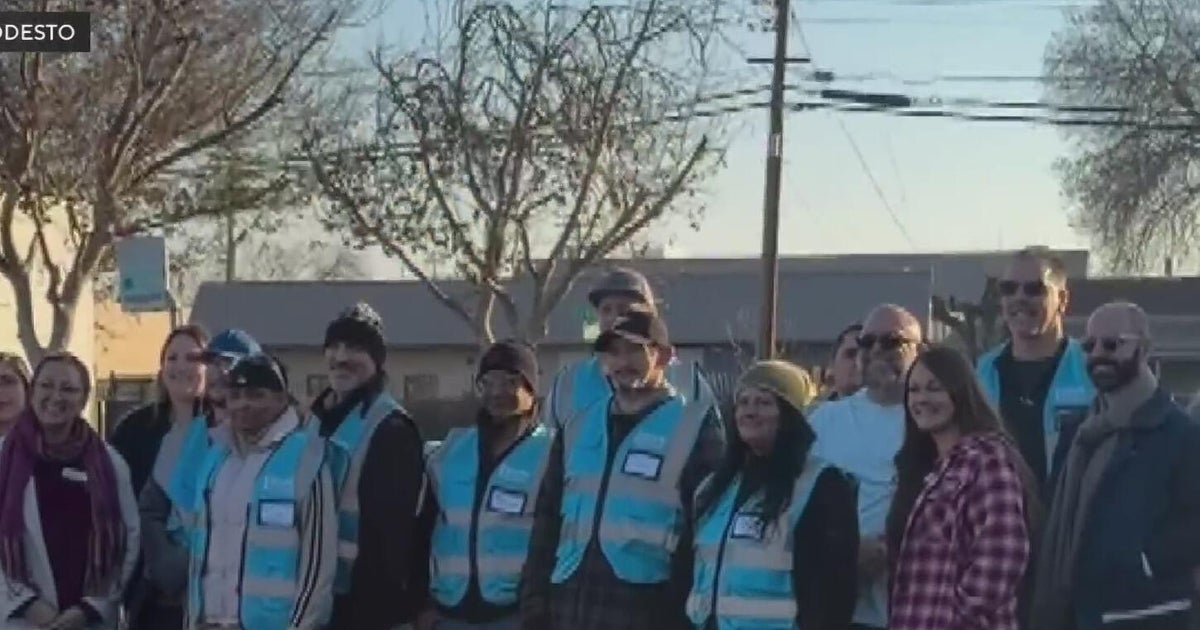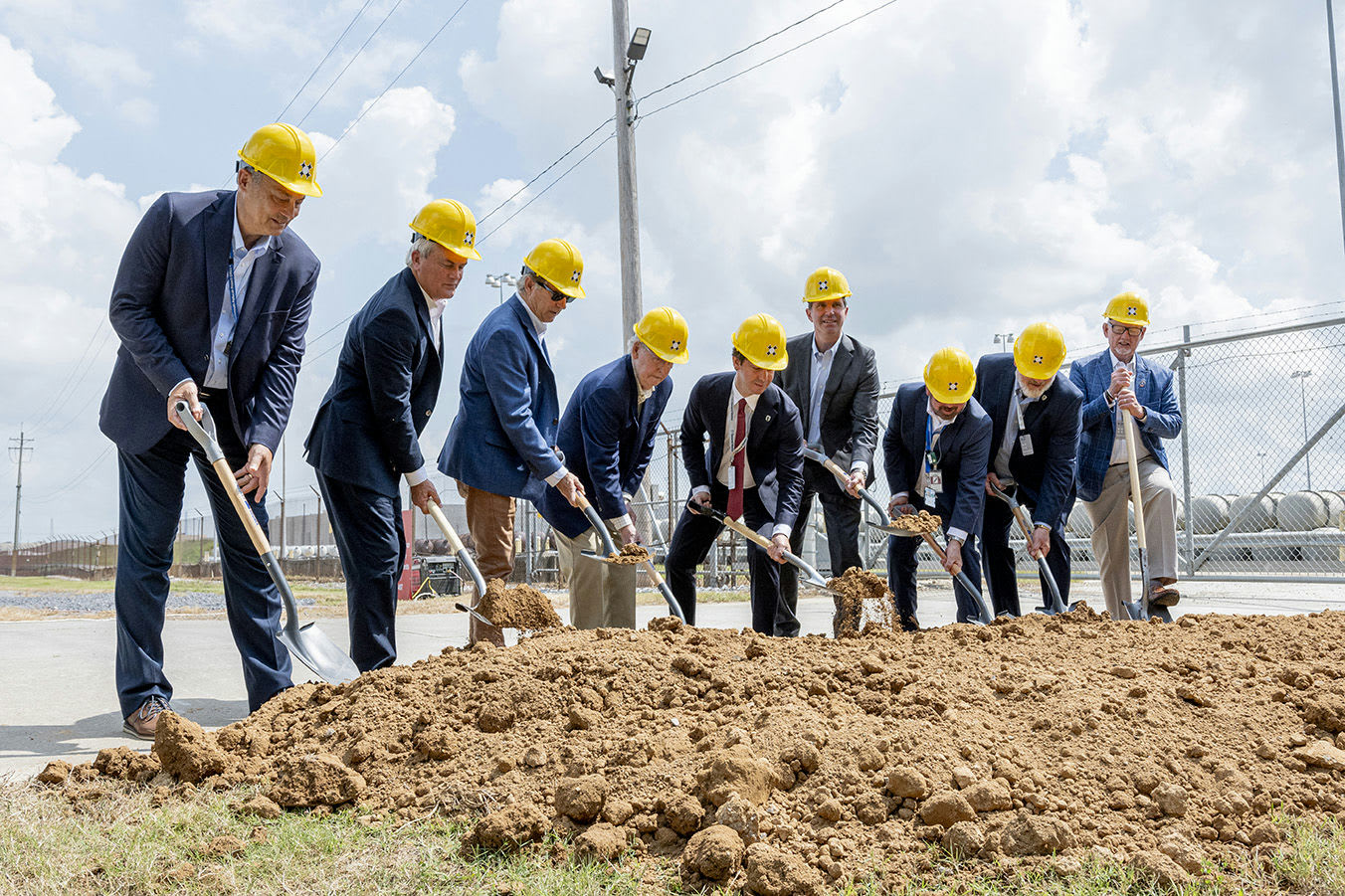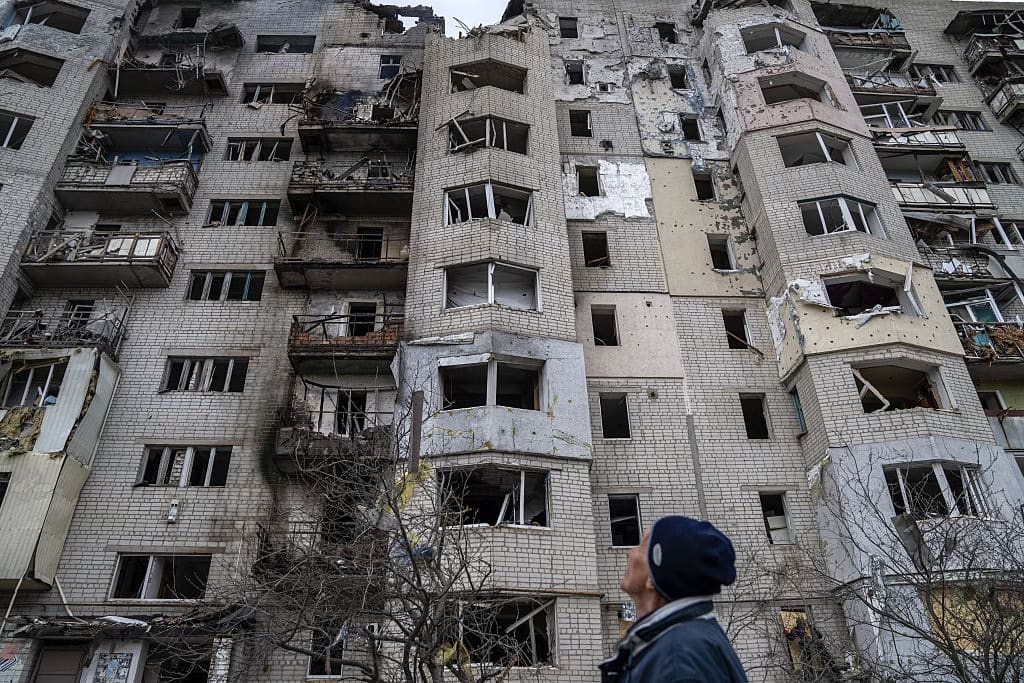Three cosmonauts launched to space station as NASA chief touts cooperation with Russia
Three cosmonauts blasted off from the Baikonur Cosmodrome in Kazakhstan Friday, caught up with the International Space Station after a two-orbit rendezvous and moved in for docking at a newly arrived Russian module. The cosmonauts are replacing three crew members — two Russians and an American — who are heading home at the end of the month to close out a record-setting flight.
The launch comes amid high tension and strained relations in the wake of Russia's ongoing invasion of Ukraine, its cancellation of cooperative commercial ventures in response to sanctions and a steady stream of fiercely critical comments from the director of the Russian space agency, raising concern about the station's future.
NASA Administrator Bill Nelson said Friday morning he's hopeful the U.S. and Russia will continue their decades-long cooperation in space that extends back to the Cold War. But he said the agency is working on contingency plans just in case.
"We have our problems with President Putin on Earth," Nelson said in an interview with CBS News. "Thank goodness we've seen Europe come together and a strengthening of NATO as we've never seen before.
"The interesting thing is, even back in 1975 during the Soviet Union, the Cold War, we were able to have cooperation in civilian space with the Russians, in (the) Apollo-Soyuz (project). And that has continued. This very day, three cosmonauts (are launching) from Kazakhstan to the International Space Station.
"They will join four Americans, two Russians and a German astronaut," Nelson continued. "That's saying this cooperation, this professional relationship between our astronauts and cosmonauts, it's consistent, and it's going to stay."
Judging by the smiles, hugs and handshakes the station crew gave the arriving cosmonauts, they agreed with Nelson's sentiments.
Soyuz MS-21/67S commander Oleg Artemyev, a space veteran, and two rookies, Denis Matveev and Sergey Korsakov, took off from Baikonur at 11:55 a.m. EDT (8:55 p.m. local time) atop a Soyuz 2.1a rocket. Eight minutes and 45 seconds later, the Soyuz was in space and on course for a two-orbit rendezvous with the space station.
Taking over manual control on final approach, Artemyev guided the ship to a smooth docking at the new multi-port Prichal module at 3:12 p.m. After extensive leak checks, hatches were opened at 5:48 p.m.
Standing by to welcome them aboard were Expedition 66 commander Anton Shkaplerov and his two Soyuz crewmates, Pyotr Dubrov and Mark Vande Hei, along with Crew Dragon NASA astronauts Raja Chari, Thomas Marshburn, Kayla Barron and German astronaut Matthias Maurer.
Despite severely strained relations, space station operations have continued without interruption, and NASA television provided live coverage of the Soyuz launching, as usual, along with commentary from mission control at the Johnson Space Center.
Wearing bright yellow jumpsuits with blue trim, Artemyev and his crewmates floated into Prichal to an enthusiastic welcome, with no signs of the tension marking relations between Russia, NASA and the European Space Agency on Earth. All 10 astronauts and cosmonauts, who know each other well from pre-flight training, seemed genuinely happy to see each other.
After a 12-day "handover," Artemyev, Matveev and Korsakov will replace Shkaplerov, Dubrov and Vande Hei, who plan to return to Earth aboard a different Soyuz on March 30. The day before, Shkaplerov will turn over command of the station to Marshburn.
Vande Hei and Dubrov were launched from Baikonur aboard a Soyuz last April 9 and are wrapping up a 355-day mission, the longest single flight by an American astronaut. Vande Hei surpassed the previous 340-day record, set by astronaut Scott Kelly, on March 15.
Oleg Novitskiy, who joined Dubrov and Vande Hei for launch, returned to Earth aboard the same Soyuz last October, leaving his two crewmates aboard the station as planned and bringing a Russian actress and her director home in their places.
Vande Hei and Dubrov plan to return to Earth aboard the Soyuz MS-19/65S spacecraft on March 30, along with Shkaplerov, who ferried actress Yulia Peresild and Klim Shipenko up to the lab last fall.
In a January interview with CBS News, Vande Hei said he and Shkaplerov had talked about the then-increasing tensions, but "we didn't really get into any feelings about how we felt about it."
"I will cherish the friendships I have with Anton, Pyotr and my previous (Russian crewmates)," Vande Hei said. "They are wonderful human beings, so I really hope things do go well.
"I definitely think that the space station, and our cooperation with the Russians on the space station in particular, are a great sign of how successful we can be when we get to know each other and things that are cooperative, rather than find points of conflict."
But in the wake of the invasion and subsequent U.S. and European sanctions, the Russians canceled sales and services of widely-used rocket engines to U.S. and European companies and halted commercial Soyuz operations at the European Space Agency's Kourou, French Guiana, launch site.
The Russian space agency Roscosmos also called off a planned launch of 36 internet satellites atop a Soyuz rocket that had already been paid for by OneWeb, an international consortium partly funded by the United Kingdom.
But space station operations have not yet been affected in any noticeable way. NASA managers have kept a deliberately low profile, avoiding any comments that might exacerbate an already tense relationship.
The station's design requires joint operation, with Russia providing the propellant and thrusters needed to keep the outpost in orbit, while NASA provides electrical power, satellite communications and the massive gyroscopes that maintain the station's orientation.
If either side pulled out of the project, it would be extraordinarily difficult to keep the station operating. NASA wants to keep the lab going through 2030, but it's not yet clear if Russia will go along.
Nelson is optimistic Putin will not pull out of the space station project, saying it's to Russia's advantage to continue.
"He's not going to pull the plug," Nelson told CBS News. "But if you're saying (what) if they abandon the space station? We'd manage, we'd figure it out. ... We know we can continue it for the short term. We'd have to do other things, and those contingency plans are already there. But we don't anticipate that."
The cooperative relationship has "survived all these years since 1975," Nelson said. "it's not going to stop now."
